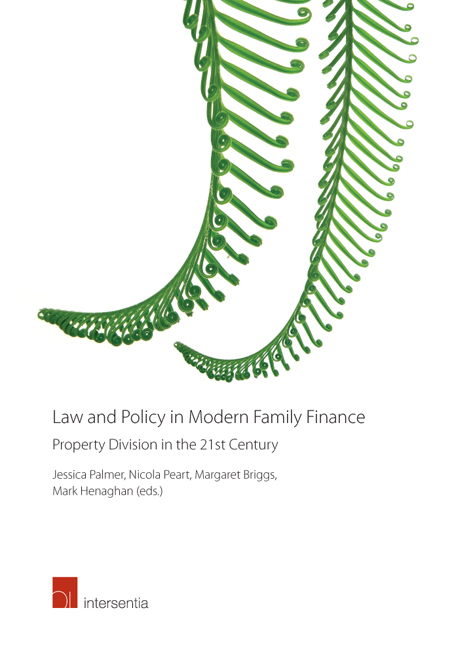Book contents
- Frontmatter
- Foreword
- Acknowledgements
- Contents
- Table of Cases
- List of Contributors
- Chapter 1 Introduction
- PART I WHO SHOULD BE COVERED BY A PROPERTY SHARING REGIME?
- Chapter 2 Reconsidering Family Property Law in the Post-Marital Age
- Chapter 3 Which Relationships Should be Included in a Property Sharing Scheme?
- Chapter 4 Children's Interests in Division of Property on Relationship Breakdown
- Chapter 5 Family Finances on Death of a Spouse or Partner
- Chapter 6 A Lament for ‘Testator's Family Maintenance’ – A Good Idea Gone Wrong? Australian Reflections
- PART II WHAT PROPERTY SHOULD BE COVERED BY A PROPERTY SHARING REGIME?
- PART III HOW SHOULD PROPERTY BE SHARED AT THE END OF A RELATIONSHIP?
- Index
Chapter 6 - A Lament for ‘Testator's Family Maintenance’ – A Good Idea Gone Wrong? Australian Reflections
from PART I - WHO SHOULD BE COVERED BY A PROPERTY SHARING REGIME?
Published online by Cambridge University Press: 29 September 2018
- Frontmatter
- Foreword
- Acknowledgements
- Contents
- Table of Cases
- List of Contributors
- Chapter 1 Introduction
- PART I WHO SHOULD BE COVERED BY A PROPERTY SHARING REGIME?
- Chapter 2 Reconsidering Family Property Law in the Post-Marital Age
- Chapter 3 Which Relationships Should be Included in a Property Sharing Scheme?
- Chapter 4 Children's Interests in Division of Property on Relationship Breakdown
- Chapter 5 Family Finances on Death of a Spouse or Partner
- Chapter 6 A Lament for ‘Testator's Family Maintenance’ – A Good Idea Gone Wrong? Australian Reflections
- PART II WHAT PROPERTY SHOULD BE COVERED BY A PROPERTY SHARING REGIME?
- PART III HOW SHOULD PROPERTY BE SHARED AT THE END OF A RELATIONSHIP?
- Index
Summary
’ The English law leaves everything to the unfettered discretion of the testator, on the assumption that, though in some instances, caprice, or passion, or the power of new ties, or artful contrivance, or sinister influence, may lead to the neglect of claims that ought to be attended to, yet, the instincts, affections, and common sentiments of mankind may be safely trusted to secure, on the whole, a better disposition of the property of the dead, and one more accurately adjusted to the requirements of each particular case, than could be obtained through a distribution prescribed by the stereotyped and inflexible rules of a general law.’
THE POST-MORTEM QUESTION
The Property (Relationships) Act 1976 (NZ) (‘ PRA ‘) is principally concerned with property resolution between couples during their lifetimes. But there is also an aspect that is post-mortem: on the premise that a person, especially a woman, should be no worse offon death than on divorce. It is here that my work comes in. A large part of my research and writing has concerned what was first called ‘Testator's Family Maintenance ‘, after the New Zealand statute of 1900 that brought this legislative genre into being. Such legislation was to be a counterweight to the freedom allowed to testators who could, in theory, leave their property to whomever they liked and, in practice, exclude widows and children. The Testator's Family Maintenance Act 1900 (NZ) enabled a court to override a will, in limited circumstances, in favour of the applicant. In this respect it represented a significant shift in the nineteenth-century laws of inheritance. This legislation is now variously known as ‘family provision‘ or ‘family protection‘ laws. The latest New Zealand iteration is the Family Protection Act 1955 (NZ).
This chapter complements the other chapters, which have focused on the lifetime dynamics and operation of the PRA, in providing insights into legislative interventions on death in favour of certain family members. It also provides some reflections from experiences in Australia.
- Type
- Chapter
- Information
- Law and Policy in Modern Family FinanceProperty Division in the 21st Century, pp. 125 - 148Publisher: IntersentiaPrint publication year: 2017



